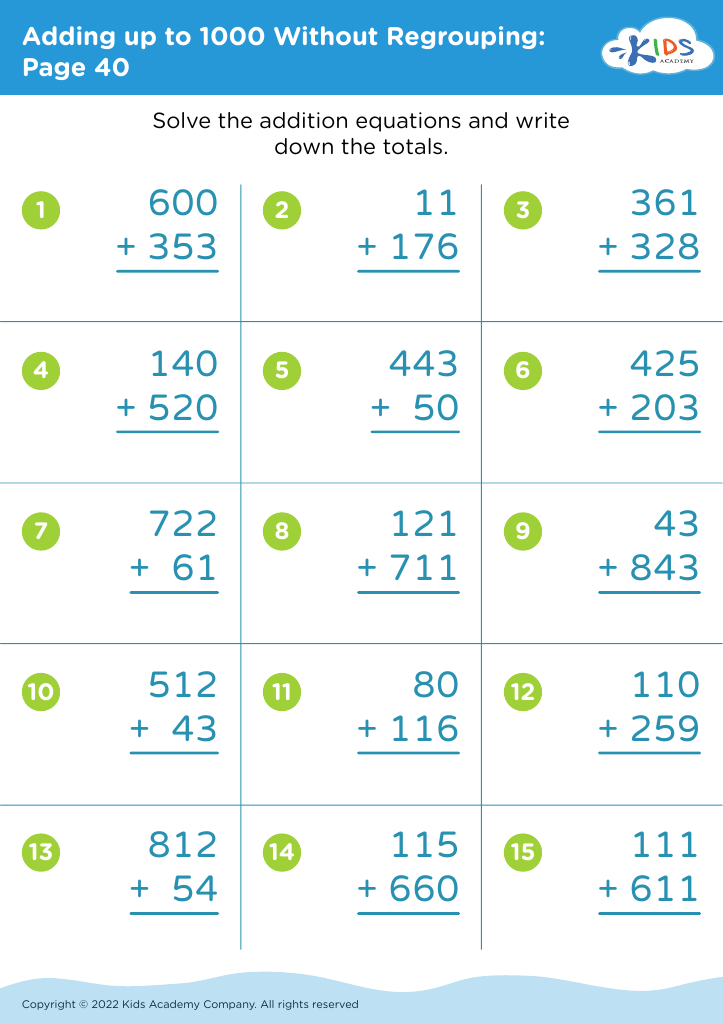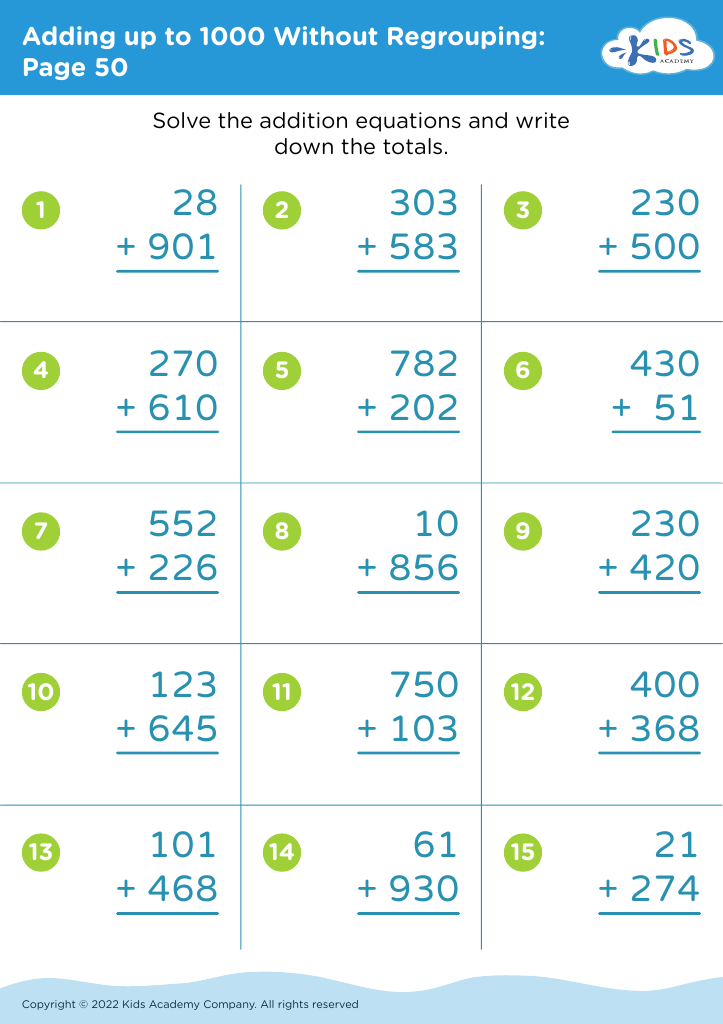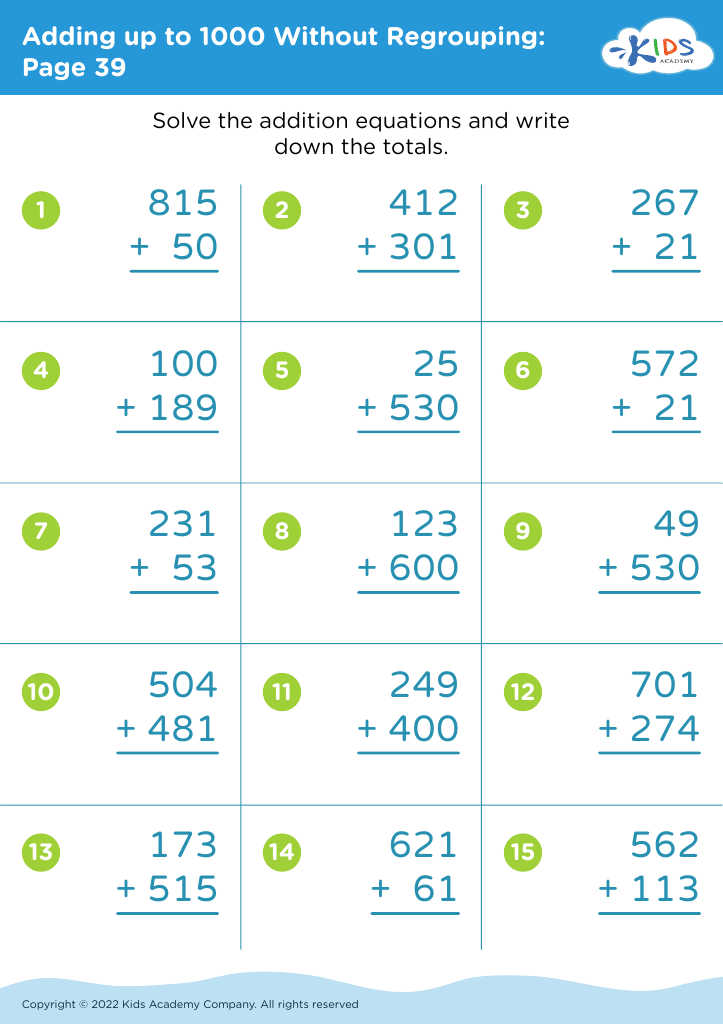Alphabet Recognition Addition & Subtraction Worksheets
4 filtered results
-
From - To
Unlock the potential of early learners with our engaging Alphabet Recognition Addition & Subtraction Worksheets. Perfectly designed for young minds, these activities blend foundational math skills with essential literacy practice. Each worksheet challenges children to recognize letters while solving simple arithmetic problems, promoting cognitive development and reinforcing key learning objectives. Ideal for classroom or home use, our fun and interactive worksheets make learning an enjoyable journey. Help your students or children build a solid math and language foundation with our expertly crafted Alphabet Recognition Addition & Subtraction Worksheets from Kids Academy today!
Parents and teachers should prioritize Alphabet Recognition and foundational Math skills like Addition and Subtraction as these are critical building blocks in a child's early education. Alphabet recognition forms the basis of literacy, empowering children to read, write, and communicate effectively. When a child can confidently identify letters and their sounds, they are well-prepared to decode words, a skill essential for reading and comprehension. This foundational literacy opens doors to exploring wide-ranging subjects and acquiring knowledge.
Similarly, early math skills, particularly addition and subtraction, are fundamental components of numeracy. These basic operations are integral to more complex mathematical concepts that students will encounter as they advance in their education. Mastering addition and subtraction improves problem-solving abilities, logical thinking, and the development of quantitative reasoning. These skills are not only crucial for academics but are also applicable in everyday life, such as managing money, time, and participating in games that require counting or scorekeeping.
By fostering strong skills in alphabet recognition and basic math from an early age, parents and teachers equip children with the tools needed for academic success, boosting their confidence and fostering a lifelong love for learning. Therefore, investing time and effort into these areas is essential for the child's holistic development.
























